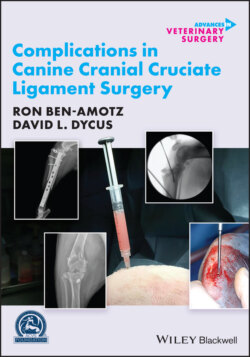Читать книгу Complications in Canine Cranial Cruciate Ligament Surgery - Ron Ben-Amotz - Страница 26
2.2.3 MRSP Carrier Status
ОглавлениеAs Staphylococcus spp. have been identified as one of the most common bacteria contributing to the development of SSIs following TPLO, and MRSP SSIs are increasing in frequency, monitoring for carriers of MRSP has been investigated [4, 13, 21,31–34]. In one study, 4.4% of animals were identified to be MRSP carriers preoperatively and carriers were 6.72 times more likely to develop an SSI. While screening for MRSP may help to determine those animals at higher risk for SSI, current screening tests are time‐consuming and not practical for routine implementation as this would result in delaying surgery [21]. Additionally, in human medicine, the goals of methicillin‐resistant Staphylococcus aureus (MRSA) screening are to allow for decolonization preoperatively [35–38]. In veterinary medicine, preoperative decolonization of MRSP is a challenge, due to not only the limited number of effective antimicrobials against MRSP, but also the inherent challenges of topical treatment of the sites most commonly colonized – the nasal passages, pharynx, and rectum [21].
Table 2.3 American society of anesthesiologists (ASA) scores.
Source: Based on Eugster et al. [2].
| ASA I | Normal, healthy patients |
| ASA II | Patients with mild systemic disease |
| ASA III | Patients with severe systemic disease |
| ASA IV | Patients with severe systemic disease that is life‐threatening |
| ASA V | Patients that will not survive 24 h without surgical intervention |
While decolonization may not be feasible, it is reasonable to alter perioperative antimicrobial prophylaxis in MRSP carriers undergoing higher risk procedures like TPLO. This may include measures such as adding a single dose of amikacin preoperatively to the typical (e.g., cefazolin) antimicrobial regime, assuming renal health has been evaluated.
